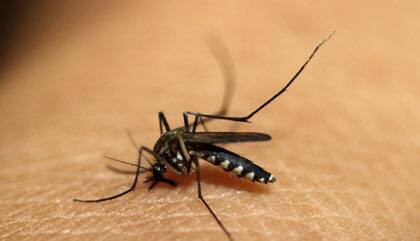Washington: A study has revealed the answer to how malaria parasite becomes resistance to the antimalarial drug in clinical trials, which makes the drugs less effective.
Audrey R. Odom, senior author of the study by Washington University School of Medicine in St. Louis, said that they wanted to know how the parasite was getting around the drug and how could it managed to live even though the drug was suppressing the compounds that were necessary fo
Many organisms, including the parasite that causes malaria, make a class of molecules called isoprenoids, which play multiple roles in keeping organisms healthy, whether plants, animals or bacteria.
In malaria, the investigational drug, fosmidomycin, blocks isoprenoid synthesis, killing the parasite, but, over time the drug often becomes less effective.
Using next-generation sequencing technology, the research team even found mutations in a gene called PfHAD1, whose dysfunction made malaria resistant to fosmidomycin.
Odom said that isoprenoid synthesis was an attractive drug target, not just for malaria, but for tuberculosis and other bacterial infections because those organisms also rely on the same isoprenoid pathway.
Inhibiting isoprenoid manufacturing in malaria, bacteria or tuberculosis, for example, would in theory leave the human pathways safely alone, and in people, perhaps the most well-known isoprenoid is cholesterol, with statin drugs famously inhibiting that manufacturing pathway.
The study is published in July 24 in Nature Communications.
















